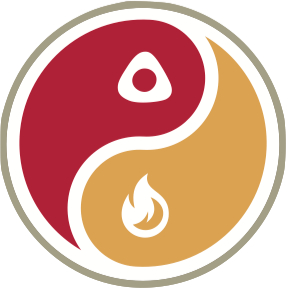Response to Mark Sisson’s assertion that vegetables are necessary for health
Mark Sisson is the author of The Primal Blueprint, and the blog Mark’s Daily Apple. His blog is a great reference, and I like his work. However, I take exception to the article he posted this week entitled Do You Really Need to Eat Vegetables to Be Healthy?
Although he admits at the end that you probably don’t need them, this admission has much less prominence than the section near the top where he says
“Yes. Yes, you do. Maybe not a huge amount, necessarily. But you do need some.”
Then he goes on to make some arguments for eating vegetables that I’d like to address.
Modern Hunter-Gatherer diets: First he argues that three of the four known modern hunter-gatherers that are purported to be carnivorous (Inuit, Masai, and Sami — leaving out Plains Indians) weren’t actually. I don’t think that’s really settled, but more importantly it doesn’t matter. Even if it were true that all modern primarily carnivorous societies ate some plants, that doesn’t and couldn’t prove we need them.
Plants as medicine: A second argument that is weaved throughout the post is that plants have medicinal compounds, and therefore should be eaten. But this doesn’t make sense. This is an argument for growing plants and extracting compounds so that we can isolate and concentrate medicine into useful portions, while removing the toxins that accompany the source. It’s no argument for taking daily minute doses of medicine along with a bunch of other random stuff that grew with it. I’ve addressed that more fully in the post Biochemical Warfare
Missing nutrients: Another argument is about getting some particular nutrients. It is argued that modern meat may be depleted of some minerals and vitamins that are dependent on the diet of the animal. That is, there are wild plants that are part of the diet of wild animals, that they use to make vitamins that we then eat, and modern meat may be inadequate. This may well be true, but insofar as it is, it does not make a convincing argument for eating those plants ourselves, along with whatever other matter they contain, any more than it argues for taking supplements. Even if modern meat is insufficient, that is no argument for eating vegetables. Moreover, a similar argument is sometimes made about plant vitamin and mineral content due to soil depletion, so eating plants may not even solve it.
(I’m ignoring the part of that section that suggests we only need plants if we refuse to eat offal or reserve the cooking water, since they support the ability to get those nutrients from meat.)
Feeding gut bacteria: Finally, the argument is made that we should eat fermentable fiber to feed our gut bacteria. Although there is much interesting research into the role of gut bacteria in health, it is far from conclusive what the best health practice is with respect to them.
As a researcher aptly pointed out in an editorial last year:
“This considerable increase in the number of [publications devoted to the study of digestive microbiota] has generated assumptions and speculations on the role of digestive microbiota in human and animal health are likely far beyond our current knowledge.” — Didier Raoult. Digestive microbiota and its influence on health: Facts and myths. Microbial Pathogenesis. 2013 Aug-Sep;61-62:A1. doi: 10.1016/j.micpath.2013.05.008. Epub 2013 May 27.
In sum, I respectfully disagree with Mark Sisson’s statement that the question “Do You Really Need to Eat Vegetables to Be Healthy” can be answered definitively, let alone with a “yes”.
I am more inclined to agree with the points he makes along the way: that if you do not eat vegetables, then you should consider eating offal, drinking broth, eating wild game, or taking supplements. In fact, I think those are worth consideration even if you do eat vegetables.
